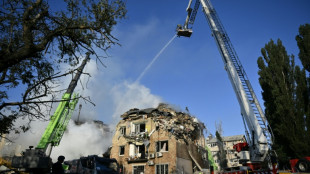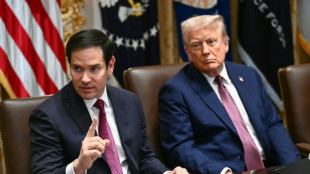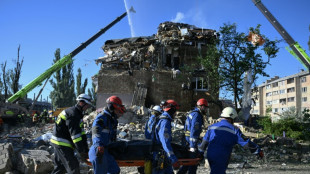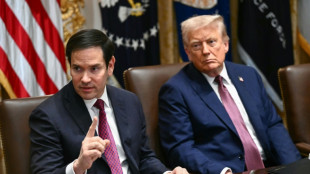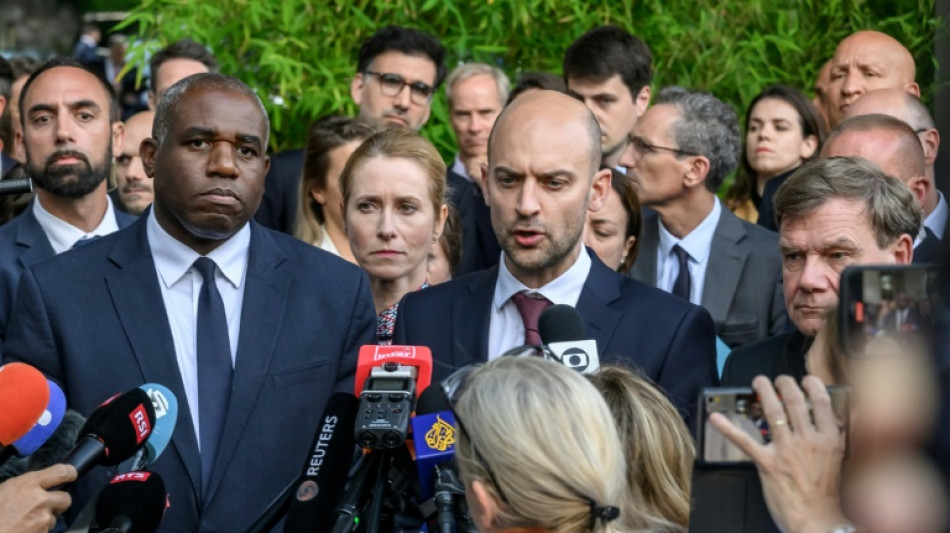

Europe powers move to reimpose Iran sanctions over nuclear drive
France, Britain and Germany on Thursday triggered a mechanism to reimpose United Nations sanctions on Iran for failing to comply with commitments over its nuclear programme it agreed to a decade ago.
Iran warned that it would "respond appropriately" to the move, which risks drawing a curtain on the most sustained diplomatic push for a peaceful solution to the Iranian nuclear crisis.
The United States welcomed the step, while emphasising it was ready for "direct engagement" with the Islamic republic with which Washington has had no diplomatic relations since shortly after the 1979 Islamic revolution.
The foreign ministers of France, Britain and Germany said they "hereby invoke the process known as the 'snapback' mechanism," which initiates a 30-day process for reimposing sanctions suspended a decade ago.
The three countries notified the UN Security Council that they "believe Iran to be in significant non-performance of its commitments" under the 2015 nuclear deal, according to a letter seen by AFP.
The move comes just over two months after the end of a 12-day war between Israel and Iran which Israel said was aimed at degrading Tehran's nuclear as well as ballistic capabilities and also saw the US launch its first strikes on the Islamic republic.
It also comes as the window for triggering the so-called snapback mechanism closes on October 18.
The UN Security Council, where France and Britain as well as the US have permanent seats alongside China and Russia, is to meet on Friday to discuss Iran, diplomatic sources said.
Russia's deputy ambassador to the UN Dmitry Polyanskiy told journalists Thursday that the Europeans' move "has absolutely no legal bearing."
Western powers have for two decades feared that Iran is seeking a nuclear weapon under the guise of an atomic energy programme, a charge vehemently denied by Tehran.
- 'Direct engagement' -
Iran has previously warned that cooperation with the UN nuclear watchdog would be affected if the mechanism was triggered.
"The Islamic Republic of Iran will respond appropriately to this illegal and unjustified action by the three European countries, in order to protect and guarantee its national rights and interests," Foreign Minister Abbas Araghchi told his French, British and German counterparts in a phone call, according to a statement from his ministry.
He did not specify further on the nature of the reaction but the Iranian foreign ministry said that the "provocative and unnecessary escalation" will "seriously undermine the ongoing process of interaction and cooperation" between Iran and the International Atomic Energy Agency (IAEA).
Iran has already suspended its cooperation with the UN nuclear agency, accusing it of failing to condemn the Israeli and US attacks.
IAEA inspectors began work at the key nuclear site of Bushehr in southwestern Iran, the first team to enter the country since Tehran formally suspended cooperation with the UN agency last month. But Tehran said this did not represent a full resumption of cooperation.
US Secretary of State Marco Rubio said the United States "remains available for direct engagement with Iran -- in furtherance of a peaceful, enduring resolution to the Iran nuclear issue."
"Snapback does not contradict our earnest readiness for diplomacy, it only enhances it," Rubio said in a statement.
Israel welcomed the move with its UN ambassador Danny Danon welcoming "an important step on the way to stopping the Iranian nuclear program and increasing pressure on the regime in Tehran."
Analysts say Israel's strikes on Iran appear to have caused some damage to infrastructure but did not obliterate the atomic programme with much of the enriched uranium still unaccounted for.
- 'Unprecedented' -
In a joint statement, British Foreign Minister David Lammy, Germany's top diplomat Johann Wadephul and French counterpart Jean-Noel Barrot said that Iran's non-compliance with the 2015 nuclear deal was "clear and deliberate".
They said Iran has "no civilian justification" for its high enriched uranium stockpile.
"Its nuclear programme therefore remains a clear threat to international peace and security," they added.
Such a stockpile "is unprecedented for a state without a nuclear weapons programme", they said.
Barrot wrote on X that "Iran's nuclear escalation must not go any further" but emphasised the move "does not signal the end of diplomacy".
He noted there is now a 30-day period where talks can take place before the sanctions are reimposed, adding "we are determined... to engage in dialogue with Iran".
The 2015 nuclear treaty was aimed at resolving the standoff over the Islamic republic's nuclear programme which had escalated ever since secret nuclear facilities were uncovered at the start of the 2000s.
But it was badly weakened when US President Donald Trump left the accord during his first mandate, and as subsequent accusations of Iranian non-compliance multiplied.
P.Gatt--JdM
